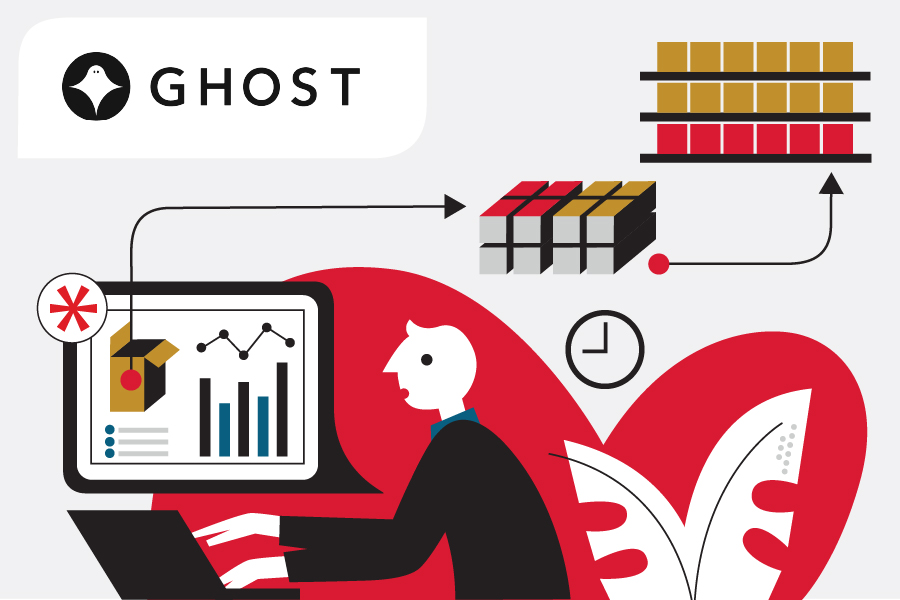Logistics
Warehousing & Fulfillment
Transportation
Industries
Technology & Innovations
E-commerce
E-commerce Fulfillment Services
Lease & Maintenance
Semi Trucks
Logistics
E-commerce
Lease & Maintenance
Buy Used Trucks

This blog is an excerpt from our latest e-book “Turning the page: Preparing for the next frontier of e-commerce” by Ghost, the world’s largest B2B marketplace for surplus inventory. You can check out the rest of the e-book here.
The management of surplus inventory has long been a challenge for businesses across traditional and e-commerce industries. However, with the rapidly evolving retail landscape and shifting consumer expectations, effectively handling surplus in channels that do not conflict with a company’s full-price business has become not just a matter of operational efficiency, but a strategic imperative.
Consumers today expect a seamless shopping experience, whether online, in-store, or through various other touchpoints. They demand choice, convenience, and competitive pricing. Brands that cannot meet these expectations risk losing market share.
The ongoing growth of e-commerce has heightened competition and created a highly dynamic retail environment. Online marketplaces and direct-to-consumer (DTC) brands have disrupted traditional retail models, forcing businesses to adapt quickly.
In an era of heightened environmental and social consciousness, consumers increasingly support brands that demonstrate responsible practices. Surplus inventory management ties into sustainability efforts, reducing waste and demonstrating a commitment to ethical consumption.
Supply chain disruptions, driven by factors like global crises, transportation issues, and labor shortages, have made inventory management more complex. Efficient surplus handling can help mitigate the impacts of supply chain disruptions.
The current solutions include liquidating to a wholesaler and selling to off-price retailers, which are riddled with challenges. Owners of goods lose control, are faced with rock-bottom pricing, are at high risk of fraud, and are met with long lead times and bad financing terms.
Brands that embrace surplus inventory management in non-conflicting channels can reap numerous benefits:
Revenue recovery: Efficiently clearing surplus inventory allows businesses to recover a portion of their initial investment. This additional revenue can be reinvested in other areas of the business.
Brand preservation: By avoiding direct price conflicts with the full-price business, brands can maintain their perceived value and premium image. Outlet stores, flash sales, and other surplus channels target different customer segments, preserving the brand's integrity.
Customer loyalty: Offering discounted surplus products to bargain-seeking customers can enhance customer loyalty. These customers may return for full-price items once they've had a positive experience with surplus purchases.
Sustainability credentials: Managing surplus responsibly aligns with sustainability goals. Brands that reduce waste and minimize their environmental footprint can attract environmentally conscious consumers and improve their reputation.
1. Channel Conflict Risk: The primary challenge is to avoid direct price competition with full-price offerings. If surplus items are perceived as substitutable, it can erode brand value and cannibalize sales.
2. Inventory Turnover: Balancing the need to clear surplus inventory quickly with the risk of devaluing the brand is a delicate art. Companies must strike a balance to prevent long-term surplus issues.
3. Strategic Pricing: Setting appropriate prices for surplus items is crucial. Brands need to ensure discounts are attractive enough to sell excess stock but not so steep that they undermine their regular pricing strategy.
4. Inventory Accuracy: Maintaining accurate inventory data across multiple channels is essential. Over-promising and under-delivering can harm customer trust.
5. Brand Image: While surplus channels can help clear inventory, they should not tarnish the brand's image. Outlet stores, for example, should still offer a quality shopping experience.
Brands can maximize the benefits of managing surplus by adopting several strategies:
1. Multi-Channel Integration: Integrate surplus channels with the main business. Customers should experience a cohesive brand identity, regardless of the channel they choose.
2. Communication: Clearly communicate the value proposition of surplus channels to customers. Highlight the benefits of shopping there without undermining the brand's primary image.
3. Customer Data Utilization: Leverage customer data to personalize surplus offerings. Tailored recommendations can increase sales and customer satisfaction.
4. Sustainability Initiatives: Promote surplus management as part of the brand's sustainability efforts. This aligns with consumer values and can enhance the brand's reputation.
5. Innovation: Explore innovative ways to manage surplus, such as partnering with resale platforms or incorporating excess materials into new product lines.
Ghost was created as the ultimate end-to-end solution for seamlessly managing surplus inventory in channels that don’t conflict with the full-price business. Ghost provides brands with an unparalleled opportunity for revenue recovery, brand preservation, a robust supply of diverse retailers, and immediate liquidity. While challenges persist, Ghost's cutting-edge data analytics, sophisticated customer segmentation, dynamic pricing capabilities, and multi-channel integration empower brands to extract the maximum value from surplus inventory.
In our latest e-book, we into what e-commerce businesses should be thinking about as we turn the page and head into 2024. Ryder and a handful of our top partners are bringing clarity to an uncertain landscape where recession is looming and customer retention has never mattered more. Download “Turning the page: Preparing for the next frontier of e-commerce.”